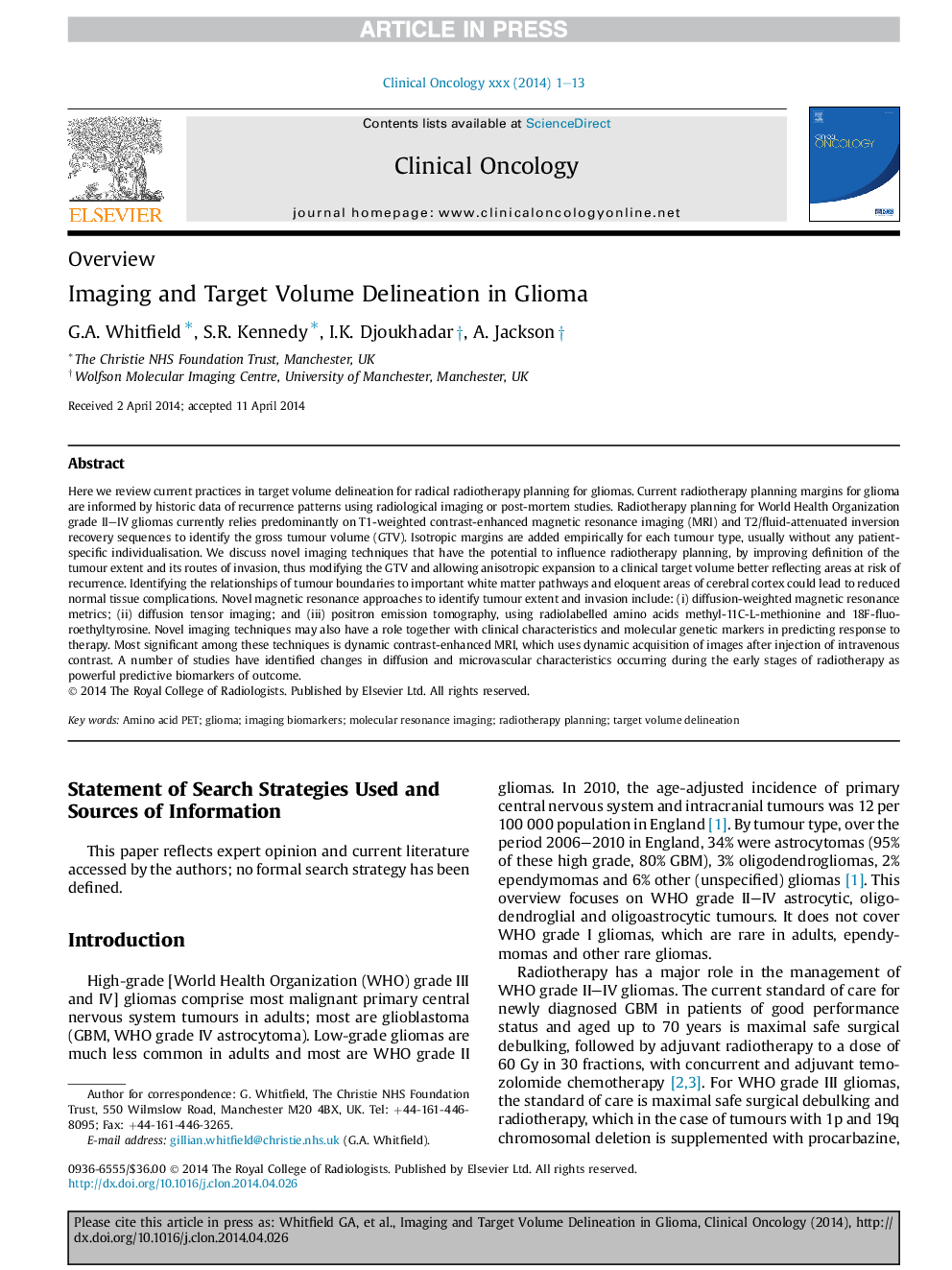| Article ID | Journal | Published Year | Pages | File Type |
|---|---|---|---|---|
| 5698316 | Clinical Oncology | 2014 | 13 Pages |
Abstract
Here we review current practices in target volume delineation for radical radiotherapy planning for gliomas. Current radiotherapy planning margins for glioma are informed by historic data of recurrence patterns using radiological imaging or post-mortem studies. Radiotherapy planning for World Health Organization grade II-IV gliomas currently relies predominantly on T1-weighted contrast-enhanced magnetic resonance imaging (MRI) and T2/fluid-attenuated inversion recovery sequences to identify the gross tumour volume (GTV). Isotropic margins are added empirically for each tumour type, usually without any patient-specific individualisation. We discuss novel imaging techniques that have the potential to influence radiotherapy planning, by improving definition of the tumour extent and its routes of invasion, thus modifying the GTV and allowing anisotropic expansion to a clinical target volume better reflecting areas at risk of recurrence. Identifying the relationships of tumour boundaries to important white matter pathways and eloquent areas of cerebral cortex could lead to reduced normal tissue complications. Novel magnetic resonance approaches to identify tumour extent and invasion include: (i) diffusion-weighted magnetic resonance metrics; (ii) diffusion tensor imaging; and (iii) positron emission tomography, using radiolabelled amino acids methyl-11C-L-methionine and 18F-fluoroethyltyrosine. Novel imaging techniques may also have a role together with clinical characteristics and molecular genetic markers in predicting response to therapy. Most significant among these techniques is dynamic contrast-enhanced MRI, which uses dynamic acquisition of images after injection of intravenous contrast. A number of studies have identified changes in diffusion and microvascular characteristics occurring during the early stages of radiotherapy as powerful predictive biomarkers of outcome.
Related Topics
Health Sciences
Medicine and Dentistry
Oncology
Authors
G.A. Whitfield, S.R. Kennedy, I.K. Djoukhadar, A. Jackson,
